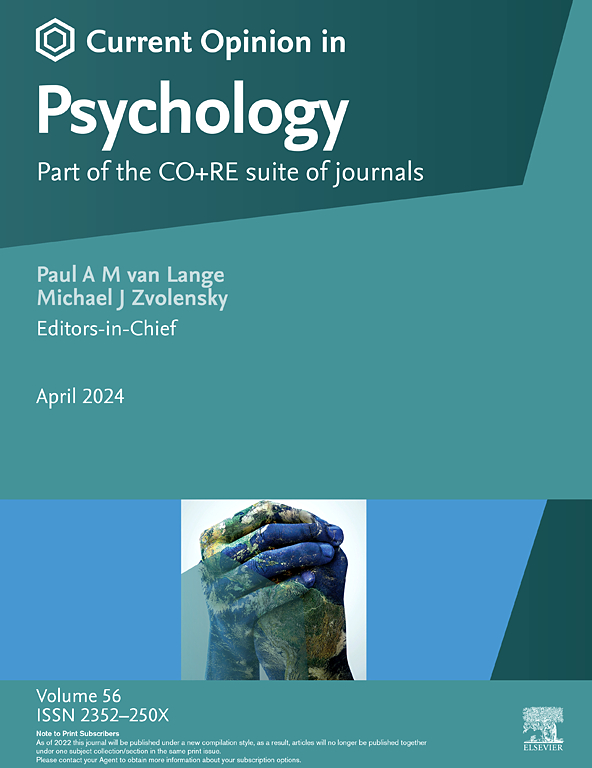从潮流引领者到第二推动者:承诺是社会变革的催化剂。
IF 6.3
2区 心理学
Q1 PSYCHOLOGY, MULTIDISCIPLINARY
引用次数: 0
摘要
本文探讨了承诺在加速缓解不适应规范方面的双重作用。通过借鉴有关社会规范和承诺的文献,我分析了承诺如何(i)解释引领潮流者的偏差行为,以及(ii)通过促使后进者做出反向选择来加速社会变革。具体而言,本文探讨了这一动态的两个关键方面:(1) 道德规范的重要性,尤其是在引领潮流者的承诺与其无条件偏好之间的关系中;(2) 第二推动者的独特作用,他们对引领潮流者的承诺会促使他们做出与其条件偏好相悖的选择,从而支持引领潮流者的行为。这表明,尽管后进者倾向于遵守既定的社会规范,但由于他们对引领潮流者的承诺,他们可能会违背自己的条件偏好行事。要克服阻碍社会变革的心理障碍,就必须了解承诺在影响引领潮流者和第二推动者行为中的作用。尽管如此,我们仍需进一步探索,以确定哪些不适应性规范对承诺的反应最为敏感,以及在何种情况下反向选择可能占上风。本文章由计算机程序翻译,如有差异,请以英文原文为准。
From trendsetters to second movers: Commitments as catalysts for social change
This paper examines the dual role of commitment in accelerating the mitigation of maladaptive norms. By drawing on the literature on social norms and commitment, I analyze how commitments (i) explain the deviant behavior of trendsetters and (ii) expedite social change by prompting counterpreferential choices among second movers. Specifically, the paper explores two key aspects of this dynamic: (1) the importance of moral norms, particularly in the relationship between trendsetters' commitments and their unconditional preferences, and (2) the unique role of second movers, whose commitment to trendsetters can lead them to make choices that contradict their conditional preferences in favor of trendsetters' behavior. This suggests that second movers, despite their tendency to conform to established social norms, may act against their conditional preferences due to their commitment to trendsetters. Understanding the role of commitments in shaping the behaviors of trendsetters and second movers is essential to overcoming psychological barriers that impede social change. Nonetheless, further exploration is needed to determine which maladaptive norms are most responsive to commitments and under what circumstances counterpreferential choices are likely to prevail.
求助全文
通过发布文献求助,成功后即可免费获取论文全文。
去求助
来源期刊

Current Opinion in Psychology
PSYCHOLOGY, MULTIDISCIPLINARY-
CiteScore
12.10
自引率
3.40%
发文量
293
审稿时长
53 days
期刊介绍:
Current Opinion in Psychology is part of the Current Opinion and Research (CO+RE) suite of journals and is a companion to the primary research, open access journal, Current Research in Ecological and Social Psychology. CO+RE journals leverage the Current Opinion legacy of editorial excellence, high-impact, and global reach to ensure they are a widely-read resource that is integral to scientists' workflows.
Current Opinion in Psychology is divided into themed sections, some of which may be reviewed on an annual basis if appropriate. The amount of space devoted to each section is related to its importance. The topics covered will include:
* Biological psychology
* Clinical psychology
* Cognitive psychology
* Community psychology
* Comparative psychology
* Developmental psychology
* Educational psychology
* Environmental psychology
* Evolutionary psychology
* Health psychology
* Neuropsychology
* Personality psychology
* Social psychology
 求助内容:
求助内容: 应助结果提醒方式:
应助结果提醒方式:


